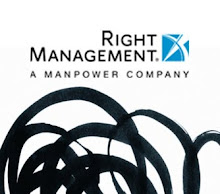So, you are applying, applying, applying and each time you either have to "complete an application form", "submit your CV to..." or "send in a full written application"...
It can be bamboozling entering the job market – a lot of you for the first time – but fear not! Often the clues are there. You may be responding to adverts from recruiters, companies or even sending out speculative letters and CV’s. It is common to send a letter with any application, in particular where you need to submit a CV. Even a few lines in an email can suffice but you will be able to gauge what the recruiter is looking for in the advertisement.
For example, when asked for a "full written CV" you should include your CV (no more than two sides long), a cover letter and where appropriate your personal statement. For graduate positions this could come in very useful.
However formal your application, follow these steps and be sure to stand out from the crowd:
WRITE TO IMPRESS
Inspire, engage and inform your reader – provide a ‘hook’ for yourself what is your Unique Selling Point (USP), how will you benefit the company?
Be clear and well structured – give them details about you and don’t be afraid to bullet key points.
Be grammatically correct – get someone to proof your letter before you hit ‘send’!
Sell yourself - make your skills relevant to those requirements of the job.
Call to action – your closing statement should always include a follow-up. Tell them you are interested to hear back from them and open to interview at a time which suits you both.
Tip: Follow up your applications. Make this known to them in your letter if making speculative applications. The usual time-frame is approx five working days.
Hint: If you are sending a cover letter to a recruiter you will probably be asked about salary. It is usual to discuss your expectations with them but don’t include this information when writing directly to an employer.
For further advice and guidance on preparing your CV and getting ready for an interview, contact us today for a full FREE GradGuide...
Subscribe to:
Post Comments (Atom)




You are right about not discussing about salary expectations in the cover letter, it is something that needs to be discussed in the interview.
ReplyDelete